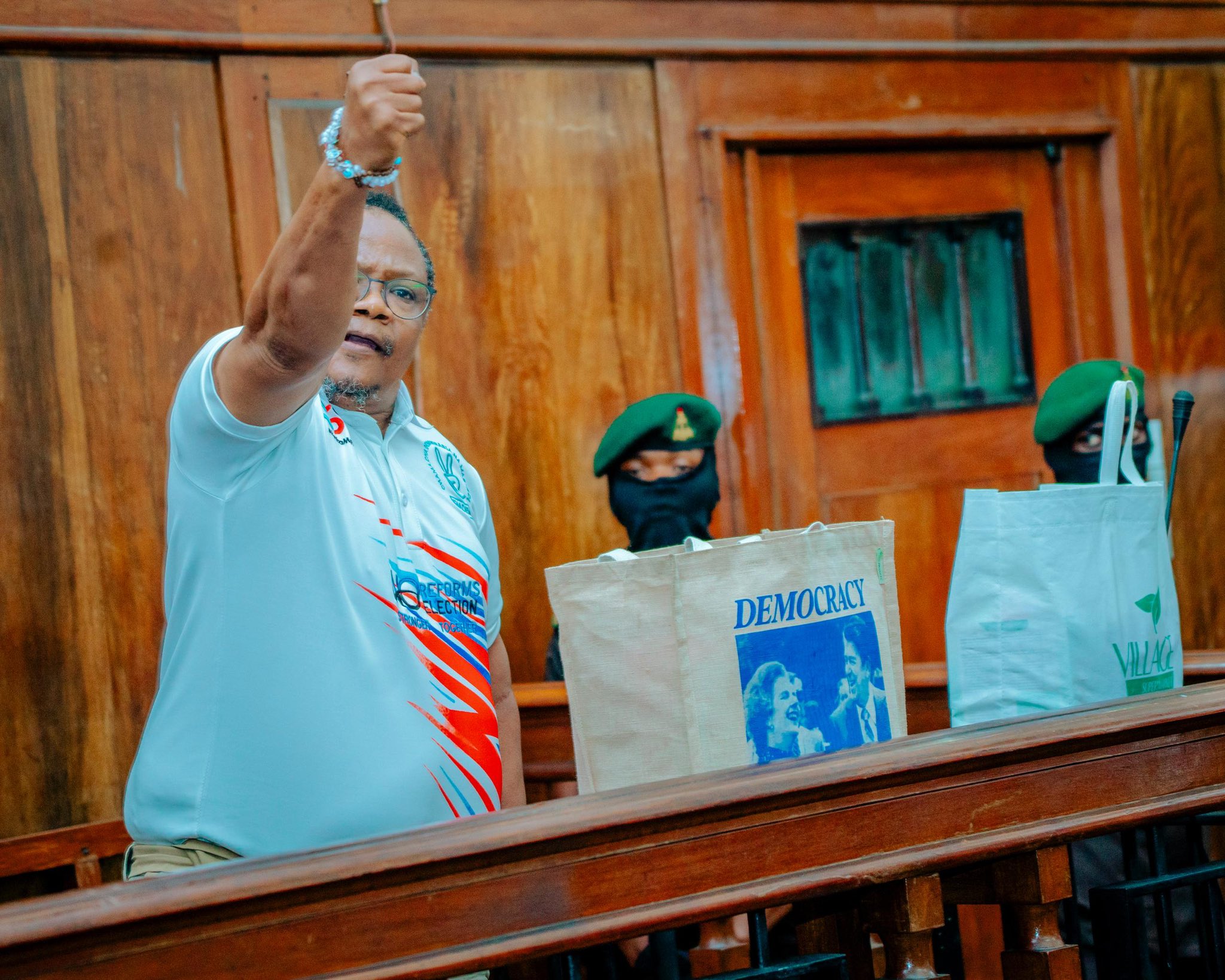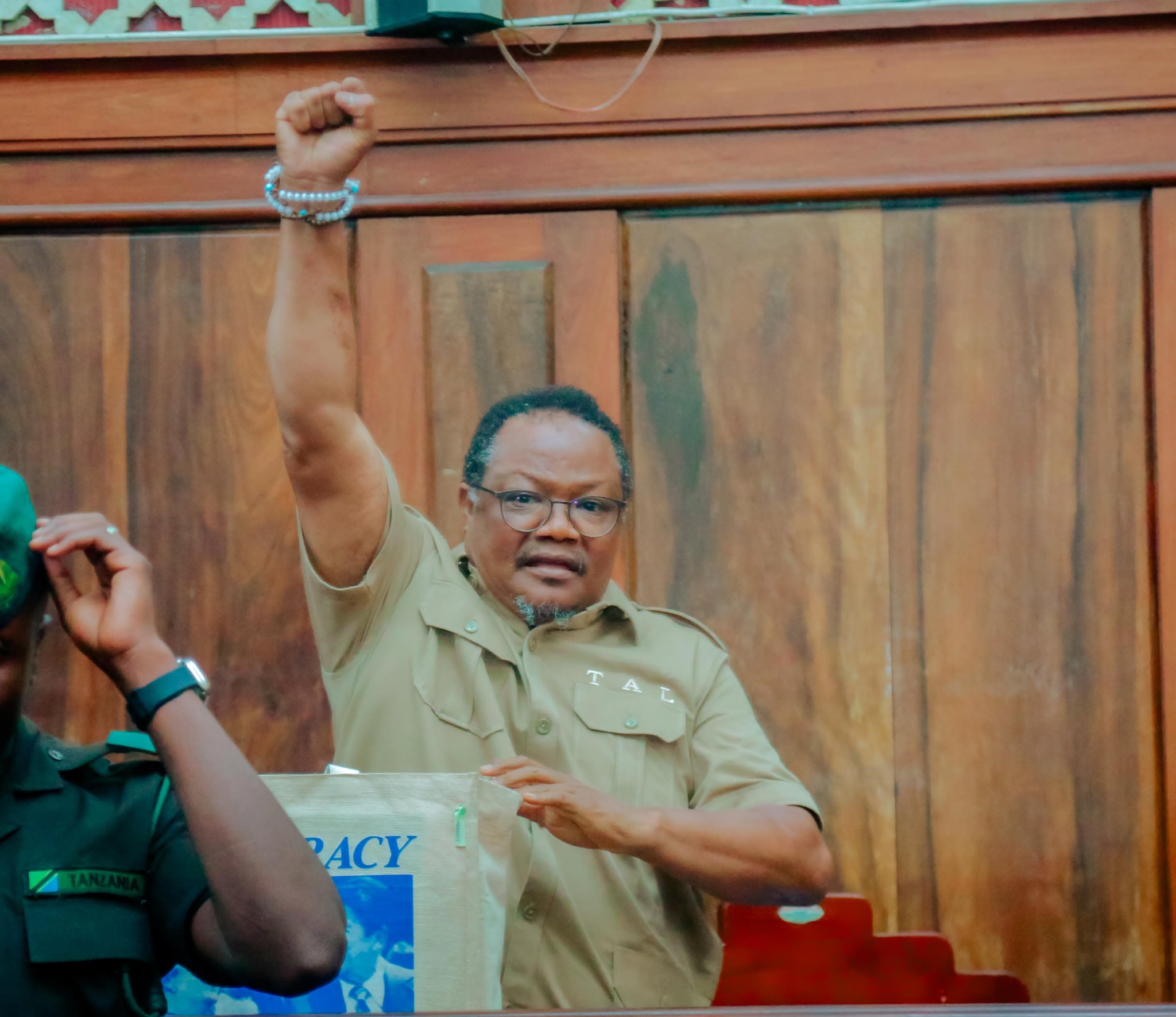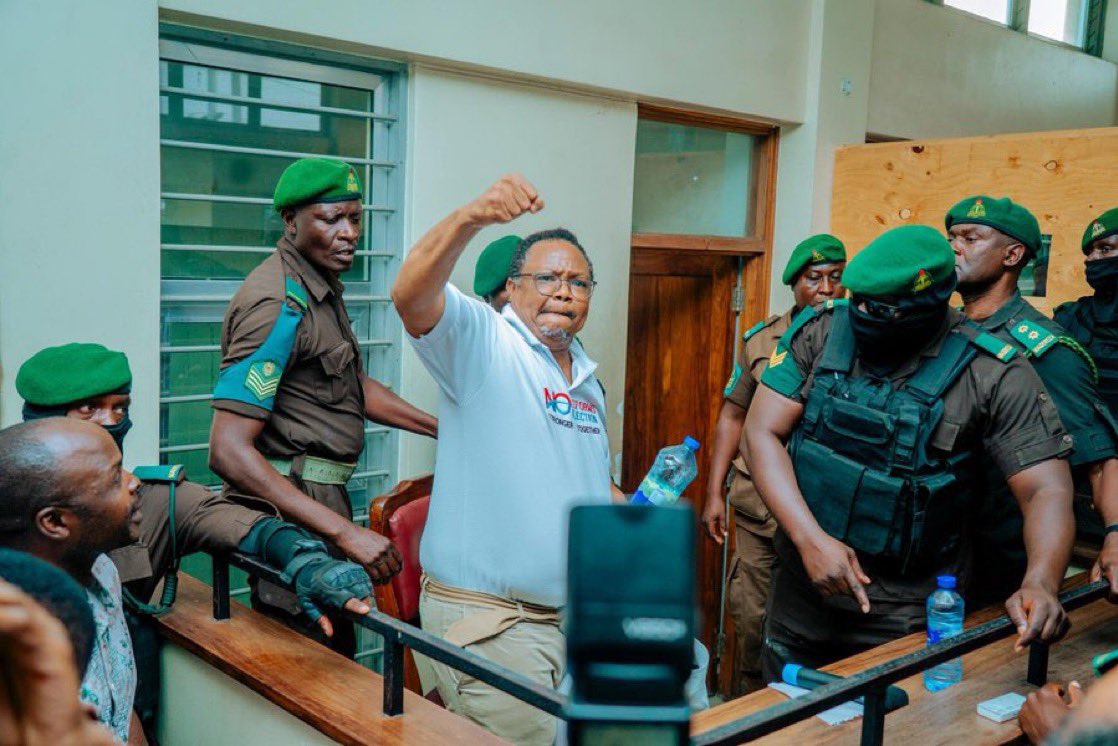The Treason charges facing Tanzanian opposition leader Tundu Lissu continued today, Wednesday, 10th Sep 2025, at the High Court of Tanzania in Dar es Salaam. Today, Lissu presented his objection regarding the legality of his prosecution process, especially the High Court’s jurisdiction to conduct the case.

On September 8, 2025, the prosecution was to submit preliminary charges against Lissu, but the submission failed after the Chadema chairperson raised two fundamental objections
First, Lissu opposes the entire process of conducting his case in the Kisutu Court, and secondly, he opposes the Court’s jurisdiction to hear the case.
In his defence submission, Lissu argued that there are glaring inconsistencies in his files from the two courts, the High Court and the Kisutu Court.
According to Lissu, the file from the Kisutu court, which he was given while at Ukonga prison, had only 16 pages, while the High Court record has 111 pages, which raises questions about the validity and authenticity of the documents. He also questioned why the Ukonga record does not have a “scanning page” while the other documents from the High Court have.

Further inconsistencies cited include:
Minutes dates, i.e., Ukonga’s record starts and ends on August 18, 2025, only, while the High Court’s record runs from April 10 to August 18, 2025.
Procedure of proceedings – Ukonga’s record shows that “Committal Proceedings” started immediately without any controversy, while the High Court’s record on page 86 shows that there were serious legal disputes that were not reflected in Ukonga’s file.
“List of witnesses” – In Ukonga’s record on page 15, the list of defense witnesses was not written when they were present. Similarly, on page 100 of this Court’s record, defense witnesses were still not listed.
Lissu explained that these differences are fundamental and raise doubts about the validity of the entire “Committal Proceedings” process. He questioned which record the High Court should trust, and why documents from the same source should differ so much.
“On the first page of the Ukonga record, it appears that the committal proceedings commenced immediately without any prior proceedings. But on the record of this Court, page 86, there was a very serious dispute which is not apparent at all in the Ukonga record.”
Then, on page 15 of the Ukonga record, there is a list of witnesses and the words “I will call witnesses.” However, the defense witnesses were not listed. It’s not that they weren’t there, they were there, and I mentioned them,” said Lissu and added
“Likewise, on page 100 of this High Court’s record, the defense witnesses were also not listed. Those are the differences between these two documents, which both come from the Court. The question now is: which one should we take, and why are they different?” he insisted.

-Basis of Objections: Law and validity of adjournments-
Lissu also raised the issue of the frequent adjournments of the case. According to him, there were 13 adjournments, many of which were without any valid reasons, contrary to section 162 of the Criminal Procedure Code.
He cited the example of the first adjournment, which did not meet the criteria of section 265(1), as well as the adjournment of 24 April 2025, where there were major legal disputes, but it was not captured in some records.
He went on to explain that, even the adjournment of 6 May 2025 did not present any compelling reasons, which made them continue to request adjournments without any solid basis, while claiming that he was placed in difficult conditions in prison, facing the risk of being mixed with people who had already been sentenced to death.
In his arguments, Lissu asked the High Court to officially declare that there were no valid *Committal Proceedings* at the Kisutu Court, thus requesting that the case be dismissed and he be allowed to return home after 154 days in prison.
He also criticized the move by Kisutu Magistrate, Franco Kiswaga, to reverse the High Court’s decisions issued on August 4, 2025, regarding witness protection, claiming that the move is tantamount to “conducting proceedings in the dark”.
-Republic opposes objections-
Responding to the arguments, Attorney General Nassoro Katuga said that the Kisutu Court had the legal authority to conduct *Committal Proceedings*, in accordance with the Law.
Katuga stressed that the treason offense that Lissu is accused of committing took place in Dar es Salaam, therefore the Kisutu Court had legal authority.
“The argument that the accused should have been charged in Mbinga is a weak and unfortunate argument,” said Katuga.
He also denied the claim that important documents were not provided to Lissu, explaining that, according to section 266, the accused has the right to be provided with documents during the trial, which has not yet begun.
Regarding the adjournment, he admitted that according to section 184 of the Criminal Procedure Act, the Court cannot receive a criminal case without *Committal Proceedings*, but he insisted that the process was carried out in accordance with the procedures.






